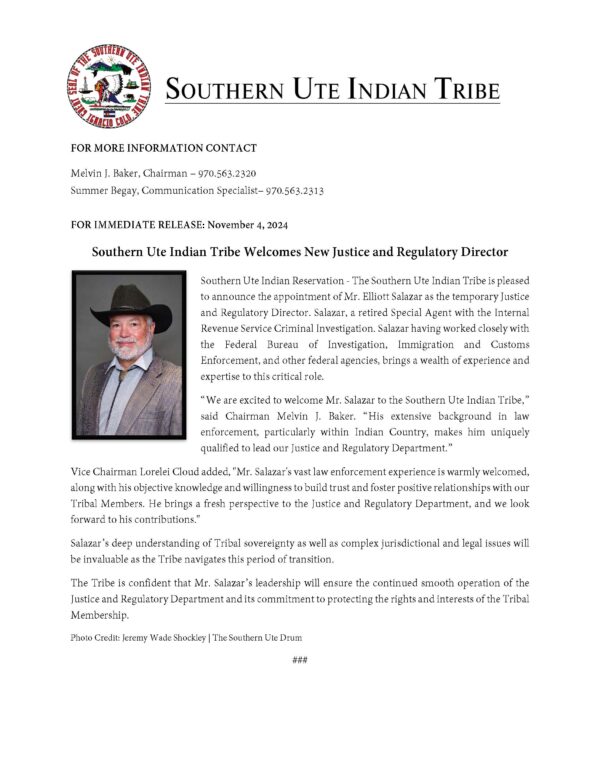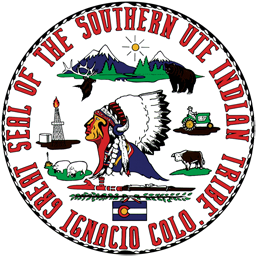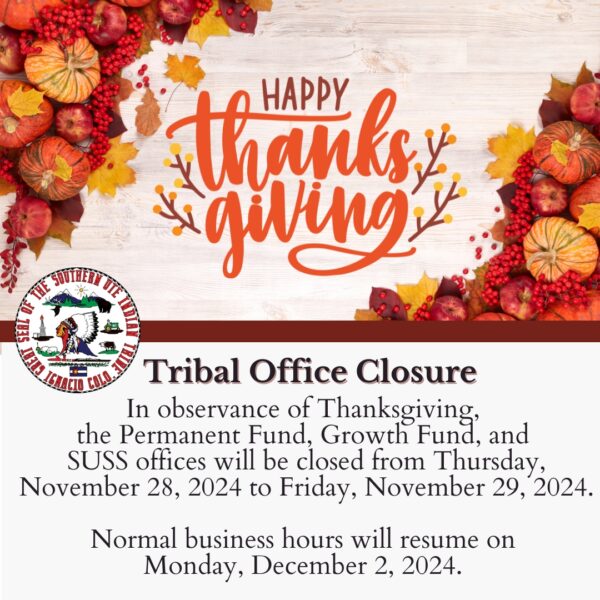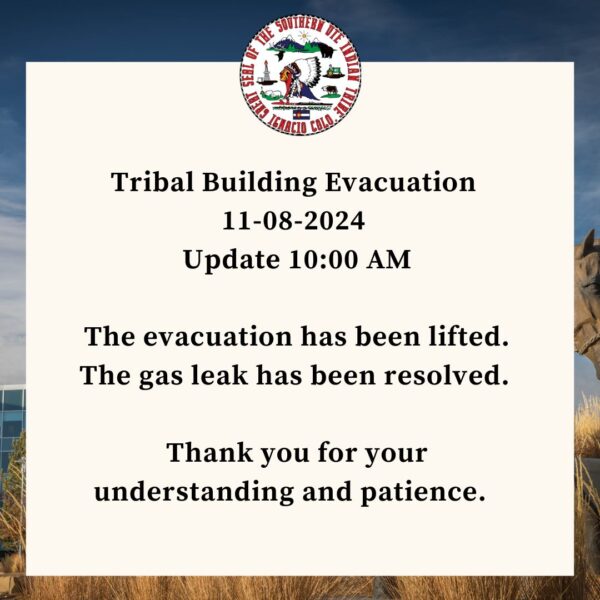Author: sbegay
Tribal Building Evacuation 11-08-2024 LIFTED
Power Restored 11/07/2024 11:30 PM
Power Outage Notification 11/07/2024 9:20 PM
Power Outage Notification 11/07/2024 9:20 PM
The Southern Ute Indian Tribe is aware of the power outage currently affecting the area. Please be advised that 911 services remain available for emergencies.
If you are an elder or individual who relies on electricity for critical health services, please contact the Southern Ute Police Department (SUPD) at 911 for assistance.
We appreciate your understanding and will provide updates as they become available.
TMX Technical Assistance
Important Announcement on TMX 11/2024
Dear Tribal Membership – There is important information on the Tribal Member Portal (TMX): https://www.southernute-nsn.gov/tmx/
For more information, please contact Mr. Shane Seibel, Executive Director, Growth Fund at 970-563-5006. For technical assistance with your “so-ute” account, please contact the Southern Ute Digital Equity Program (SUDEP) at 970-563-5555.
Honoring Veterans Event
BIA Southern Ute Agency: Fall Water Users Meeting
For Immediate Release: Southern Ute Indian Tribe Welcomes New Justice and Regulatory Director 11042024
FOR MORE INFORMATION CONTACT
Melvin J. Baker, Chairman – 970.563.2320
Summer Begay, Communication Specialist– 970.563.2313
FOR IMMEDIATE RELEASE: November 4, 2024
Southern Ute Indian Tribe Welcomes New Justice and Regulatory Director
Southern Ute Indian Reservation – The Southern Ute Indian Tribe is pleased to announce the appointment of Mr. Elliott Salazar as the temporary Justice and Regulatory Director. Salazar, a retired Special Agent with the Internal Revenue Service Criminal Investigation. Salazar having worked closely with the Federal Bureau of Investigation, Immigration and Customs Enforcement, and other federal agencies, brings a wealth of experience and expertise to this critical role.
“We are excited to welcome Mr. Salazar to the Southern Ute Indian Tribe,” said Chairman Melvin J. Baker. “His extensive background in law enforcement, particularly within Indian Country, makes him uniquely qualified to lead our Justice and Regulatory Department.”
Vice Chairman Lorelei Cloud added, “Mr. Salazar’s vast law enforcement experience is warmly welcomed, along with his objective knowledge and willingness to build trust and foster positive relationships with our Tribal Members. He brings a fresh perspective to the Justice and Regulatory Department, and we look forward to his contributions.”
Salazar’s deep understanding of Tribal sovereignty as well as complex jurisdictional and legal issues will be invaluable as the Tribe navigates this period of transition.
The Tribe is confident that Mr. Salazar’s leadership will ensure the continued smooth operation of the Justice and Regulatory Department and its commitment to protecting the rights and interests of the Tribal Membership.
Photo Credit: Jeremy Wade Shockley | The Southern Ute Drum

Southern Ute Indian Tribe Welcomes New Justice and Regulatory Director Press Release 11042024
BIA Southern Ute Agency New Contact Information










